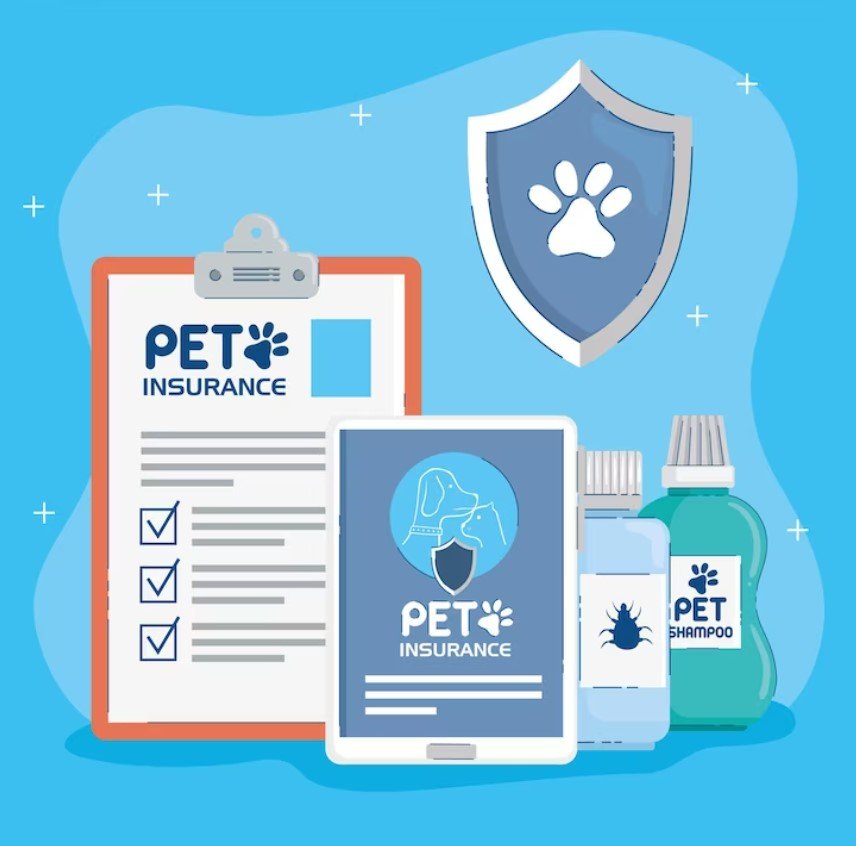As a pet owner, it’s essential to have a plan in place to protect your furry companion in case of sickness, injury, or any other unexpected situations. Pet insurance offers a financial protection plan against unforeseen circumstances, providing peace of mind for pet owners. Pet insurance can cover a variety of needs and is available in different types to fit your pet’s unique needs. Understanding the benefits of pet insurance helps pet owners make an informed decision when it comes to providing their pet with the best possible care.
There are several types of pet insurance, including accident-only coverage, time-limited coverage, and maximum benefit coverage. When selecting pet insurance, it’s important to consider the type of coverage that best suits your pet’s needs, as well as the cost of the plan and the amount of coverage it offers. Pet owners should also weigh the advantages of pet insurance, such as lower veterinary bills, access to a larger network of veterinarians, and the peace of mind that comes from knowing your pet is covered in case of an emergency. By understanding the benefits of pet insurance, pet owners can make an informed decision about the best type of coverage for their pet.

Why Pet Insurance Matters?
The Emotional Bond of Pet Ownership and Why Pet Insurance Matters in Our Lives
The bond between a pet and its owner is truly special. Pets have the ability to offer us unconditional love and companionship. They become an integral part of our lives and are often regarded as family members. However, with pet ownership comes responsibility. Health care costs for pets can be expensive and rising, and accidents or illnesses can occur without warning. This is why pet insurance is so important.
The Rising Costs of Pet Healthcare and Why Pet Insurance is Essential”
As pet owners, we love our furry friends and want to provide them with the best care possible. Unfortunately, the costs of pet healthcare are rising and can be difficult to cover. With veterinary services becoming more specialized and advanced, pet owners face increasing bills for treatment and care. Not only that, but pets are also vulnerable to accidents and illnesses that can require emergency medical attention and surgery. With the right pet insurance plan, pet owners can be assured that their precious pets will get the care they need and deserve, regardless of the cost. Pet insurance can help to reduce the financial burden that comes along with pet healthcare and give pet owners peace of mind.
Protecting Your Furry Family Members from Unforeseen Accidents and Illnesses
Keeping a pet is a big responsibility and can bring a great deal of joy to your home. However, just like humans, our furry friends can become injured or ill, often in ways that are unexpected and costly. Pet insurance is an important investment that can help protect your pet, your wallet and your peace of mind.
Accidents can happen at any time, and the costs of medical care for a pet can quickly add up. Even something seemingly minor, like an ingrown nail, can result in expensive vet bills. For more serious issues, like a broken bone or an illness, the medical bills can be even more substantial. Pet insurance can help reduce the financial burden of treating your pet by covering some of the associated costs.

Certain breeds of pets may be more prone to certain illnesses, and pet insurance can provide peace of mind that you won’t be stuck with a huge vet bill if your pet develops an unexpected condition. With pet insurance, you can rest assured that you will have help with the costs if your pet needs treatment.
Types of Pet Insurance
What to Look for in Pet Insurance?
When it comes to pet insurance, there are a few key things to consider. First, it is important to look for a policy that covers the type of pet you have. For example, if you have a dog, you may need a different policy than if you have a cat. Additionally, you should determine what type of coverage you need. Are you looking for basic coverage or something more comprehensive? This can help you narrow down your options. Also, it is important to look at the limits of coverage. How much are you willing to pay out of pocket in the event of an emergency? Understanding these details can help you select the right pet insurance plan for you.
Coverage Options and Limits
When it comes to pet insurance, there are a variety of coverage options and limits available. Generally, you can choose from basic plans, which provide basic coverage for common pet ailments, or comprehensive plans, which offer more comprehensive coverage for more serious medical issues. Additionally, you can opt for a plan that covers only certain types of expenses, such as vet visits, or a plan that covers all of your pet’s medical needs. The limits of coverage are also important to consider. Most pet insurance plans have a maximum limit of coverage, meaning you will be responsible for any costs beyond the stated limit.
Pre-Existing Conditions
Another important factor to consider when selecting a pet insurance plan is pre-existing conditions. Many plans do not cover pre-existing conditions, so it is important to read the fine print and make sure that your pet’s condition is covered under the policy. Additionally, some plans may not cover certain types of treatments or procedures, so be sure to ask your insurance provider about these details. By understanding the coverage options, limits, and pre-existing conditions associated with pet insurance, you can be sure to select the right policy for your pet’s needs.
How to Choose the Right Pet Insurance
Researching Pet Insurance Providers:
Before choosing a pet insurance provider, it is important to do extensive research. Start by researching the different providers available and identify which ones offer the coverage you need. Check the insurance company’s website to learn more about the policies they offer, the coverage they provide, and any special discounts or promotions they may have. Be sure to read through the fine print and ask any questions you have about the policy. It is also important to compare different providers and policies to find the best option for you and your pet.

Comparing Coverage and Pricing:
Once you have identified potential pet insurance providers, it is important to compare the coverage and pricing of each policy. Check the limits of each policy, including the maximum payout and any additional coverage options. Also, compare the premiums and deductibles, as these will affect the cost of the policy. Be sure to look at any extra services or features each policy may offer, such as reimbursement for preventive care or emergency services.
Reading Customer Reviews and Testimonials:
When researching pet insurance providers, it is important to read customer reviews and testimonials. Reviews can provide helpful feedback on the customer service and claims process of the provider. Testimonials can also be a great way to get an idea of how the policy worked for others in similar situations. Reading customer reviews and testimonials can help you make an informed decision and choose the provider that best meets your needs.
How Pet Insurance Works
Policy Terms and Conditions:
Pet insurance policies differ and can be tailored to meet individual needs. Generally, a policy will cover veterinary fees for treatment of illness and injury, preventive care, and other services such as euthanasia and cremation. Policies may also include coverage for specific conditions like cancer, allergies, diabetes, and congenital diseases. It’s important to read the policy terms carefully to understand what is and is not covered.
Claims Process:
Making a claim on a pet insurance policy is usually quite simple. The policyholder will need to submit a claim form along with any necessary paperwork and evidence of expenses. Depending on the insurance policy, the claim can be processed within a few days or a few weeks. The insurance company will then either pay the claim directly or reimburse the policyholder for the expenses.
Waiting Periods and Deductibles:
Pet insurance policies typically have waiting periods of several days or weeks before coverage begins. This is to prevent people from buying insurance right before they know their pet will need expensive treatment. Deductibles are also common with pet insurance policies, which is an amount the policyholder will have to pay out of pocket before the insurance coverage kicks in.

Advantages of Pet Insurance
Financial Benefits of Pet Insurance:
Pet insurance can provide significant financial benefits for pet owners. By having pet insurance, you can be protected from the large costs associated with unexpected veterinary visits, emergency surgeries, and other medical treatments. Pet insurance also gives you the freedom to choose the best care for your pet without worrying about the cost. Knowing that your pet is covered by insurance can help you make decisions about the care your pet needs without having to worry about the financial implications.
Medical Benefits of Pet Insurance:
Pet insurance can also provide medical benefits for your pet. Many policies cover preventative care such as vaccinations, flea and tick treatments, and heartworm medications which can help keep your pet healthy. In addition, pet insurance can also cover certain medical treatments such as surgery, chemotherapy, and more. Having pet insurance can give you peace of mind knowing that your pet will receive the care they need, no matter the cost.
Peace of Mind Benefits of Pet Insurance:
Perhaps the most important benefit of pet insurance is the peace of mind it provides. Knowing that your pet is covered by insurance can give you the assurance that they will receive the best care possible, no matter the cost. With pet insurance, you won’t have to worry about the financial implications of medical treatments and can focus on providing the best care possible for your pet.
Common Misconceptions about Pet Insurance
Pet Insurance is Expensive:
Many people believe that pet insurance is expensive, however, this is not necessarily true. Pet insurance can actually be quite affordable, especially when you consider the costs of unexpected veterinary care. In addition, pet insurance is often much cheaper than human health insurance. When you consider the peace of mind that pet insurance provides, it can be well worth the cost.
Pet Insurance is Unnecessary:
This is simply not true. Pet insurance is essential for anyone who wants to be prepared for unexpected veterinary bills. Without pet insurance, you may find yourself in a financial bind if your pet becomes ill or injured. Pet insurance can help you to have peace of mind that you will be able to pay for any necessary treatments for your pet.
Pet Insurance is Complicated:
While pet insurance does have its own terminology, it is actually quite simple. Most pet insurance policies offer basic coverage for accidents and illnesses with optional ad ons such as coverage for routine care, alternative therapies, and preventive care. You can easily customize your pet insurance policy to meet your needs. Additionally, most pet insurance companies have helpful customer service staff who can answer any questions you may have.
Conclusion
In conclusion, pet insurance is an invaluable investment for pet owners. Pet insurance helps protect pet owners from the financial burden of unexpected veterinary bills, as well as providing peace of mind that their furry family members will be taken care of in the event of an emergency. Pet insurance also provides coverage for routine and preventive care, which is important for the overall health of their pet. Pet insurance is an affordable way to provide the level of care that pet owners want for their beloved companions.
FAQ – Pet Insurance
1. What is pet insurance?
Pet insurance is an insurance policy that helps cover the cost of veterinary care for your pet. It provides financial protection for unexpected illnesses and injuries, as well as routine and preventative care.
2. What are the benefits of pet insurance?
Pet insurance can help cover the cost of veterinary care for unexpected illnesses and injuries, as well as routine and preventative care. It can also provide peace of mind knowing that your pet will be taken care of if something were to happen.
3. How much does pet insurance cost?
The cost of pet insurance varies based on the type of coverage you choose and the breed of your pet. Generally, the cost of pet insurance ranges from $20 to $50 per month.
4. What is covered by pet insurance?
Most pet insurance policies cover the cost of veterinary care for unexpected illnesses and injuries, as well as routine and preventative care. Some policies may also cover additional items such as grooming, boarding, and even pet funerals.
5. Do I need pet insurance?
Whether or not you need pet insurance depends on your individual situation. If you are able to cover the cost of veterinary care for your pet without pet insurance, then you may not need it. However, if you would like to have financial protection for unexpected illnesses and injuries, as well as routine and preventative care, then pet insurance may be a good option for you.
6. What is the best pet insurance for me?
The best pet insurance for you will depend on your individual situation and the type of coverage you need. It’s important to compare different pet insurance policies to find one that fits your budget and provides the coverage you need.
7. Is pet insurance worth the cost?
Pet insurance can be worth the cost if it provides financial protection for unexpected illnesses and injuries, as well as routine and preventative care. It can also provide peace of mind knowing that your pet will be taken care of if something were to happen.
8. How do I compare different pet insurance policies?
When comparing different pet insurance policies, it’s important to look at the type of coverage offered, the cost of the policy, and any additional benefits such as discounts or bonuses. Additionally, you should make sure to read the fine print and understand any exclusions or limitations.
9. What should I look for when choosing a pet insurance policy?
When choosing a pet insurance policy, you should look for one that provides the coverage you need at a price you can afford. Additionally, make sure to read the fine print and understand any exclusions or limitations.
10. Are there any discounts or bonuses with pet insurance?
Some pet insurance policies may offer discounts or bonuses, such as discounts on veterinary services or free pet treats. It’s important to read the fine print and understand any discounts or bonuses that are offered.
